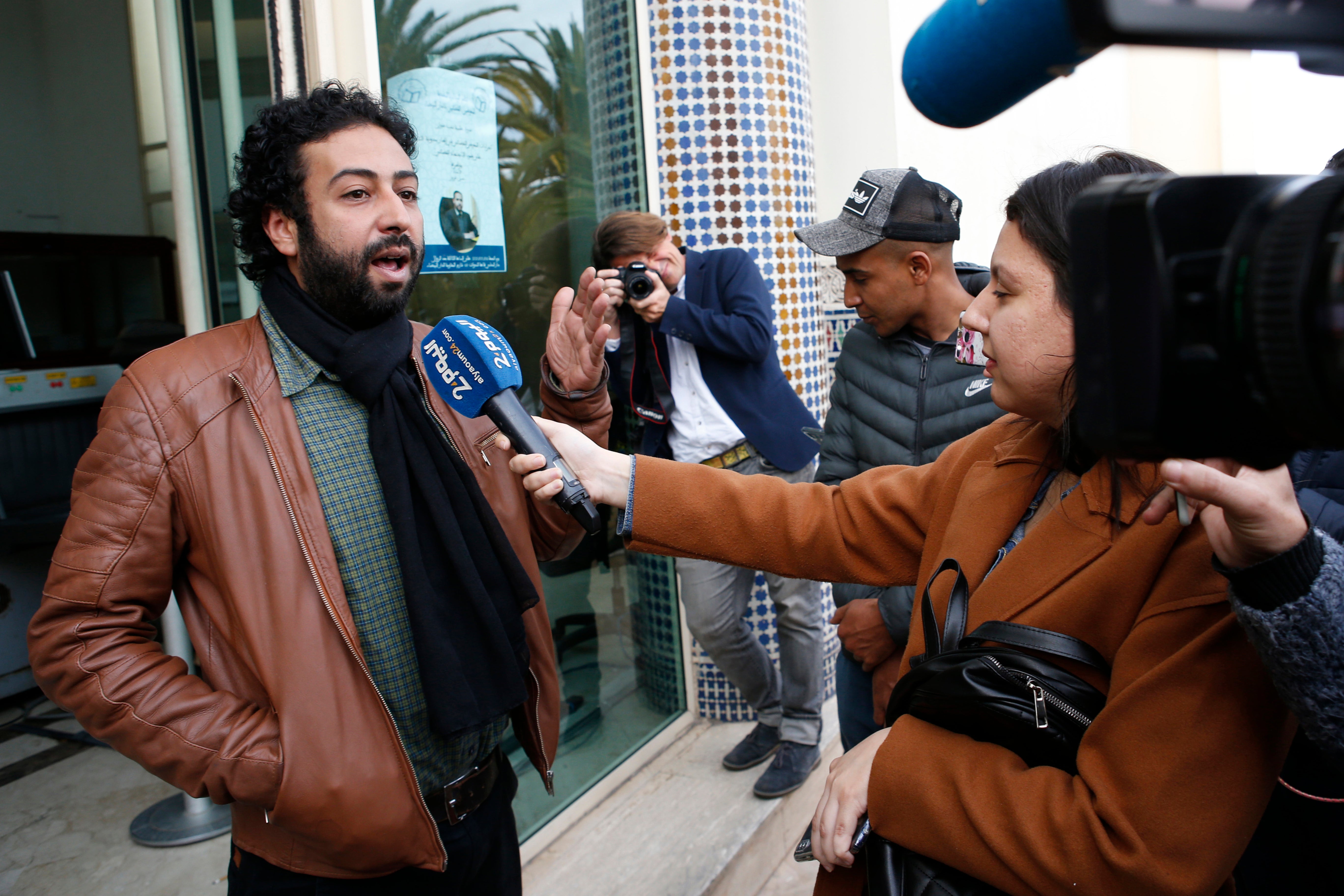Moroccan journalist convicted of spying, sex assault
A Casablanca court has convicted prominent journalist and activist Omar Radi on charges of espionage and sexual assault and sentenced him to six years in prison

A Casablanca court on Monday convicted prominent journalist and activist Omar Radi on charges of espionage and sexual assault and sentenced him to six years in prison.
His colleague, Imad Stitou, was convicted of “participation in rape” and sentenced to 12 months in prison, with six months suspended.
Radi, an investigative journalist jailed since his arrest in July 2020, has denied any wrongdoing. Rights groups say the charges against Radi were politically motivated, and his case has raised concerns about media freedoms in Morocco.
Radi was the subject of an Amnesty International report in June 2020 that said Moroccan authorities had unlawfully spied on the journalist through his phone by using sophisticated surveillance software. The Moroccan government disputed the claim.
Radi was among 189 journalists around the world identified as being on a list of allegedly targeted clients of Israeli-based NSO Group a hacker-for-hire using military-grade malware for potential spying on journalists, human rights activists and political dissidents, a global media consortium reported this week.
The Paris-based journalism non-profit Forbidden Stories and the human rights group Amnesty International shared the information with 16 news organizations, including The Associated Press.
The United States has voiced its concerns about treatment of some journalists by the North African kingdom. Another journalist, Soulaimane Raissouni, was recently sentenced to five years in prison.
U.S. State Department spokesman Ned Price said that media freedom “is foundational to prosperous and secure societies and governments must ensure that journalists can safely perform their essential roles without fear of unjust tension, violence or threats.” The case of Raissouni and others, including Radi, were being watched, Price said, and “we have raised these concerns with the Moroccan government and we will continue to do so.”
Morocco, a major U.S. ally, quickly took issue with the U.S. stance. Its Ministerial Delegation for Human Rights said the State Department “knowingly obscured the point of view of the complainants and their defense, going so far as to deny their very status of victim.” The statement said it was “astonished” at the focus on the professional status — journalist — and his allegations.
The Casablanca court ordered Radi and Stitou to pay the equivalent of more than $22,300 to the victim of the alleged sexual assault.
Bookmark popover
Removed from bookmarks